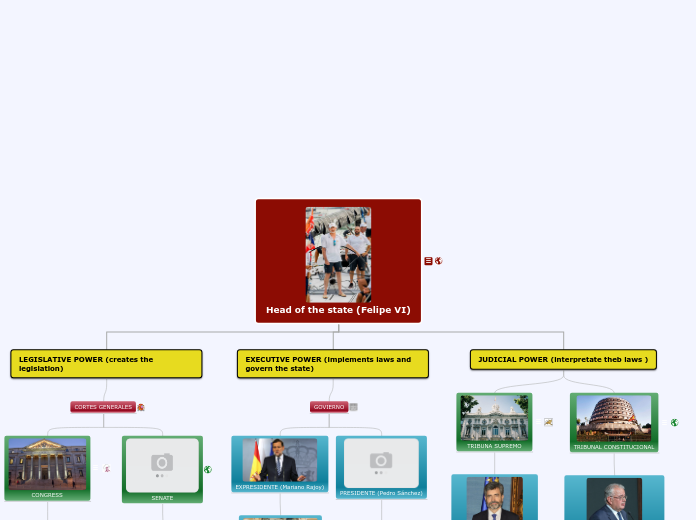によって Rodrigo Marugán 6年前.
1033
SPANISH CONSTITUTION

によって Rodrigo Marugán 6年前.
1033

もっと見る
Section 113
Section 114
León y ejerce la función ejecutiva y la potestad reglamentaria de acuerdo con el presente Estatuto y el resto del ordenamiento jurídico.
Section 56
Section 159
Section 123
MINISTERS
EXMINISTERS
PRESIDENT (Pío García)
Section 68
PRESIDENT (Ana Pastor)